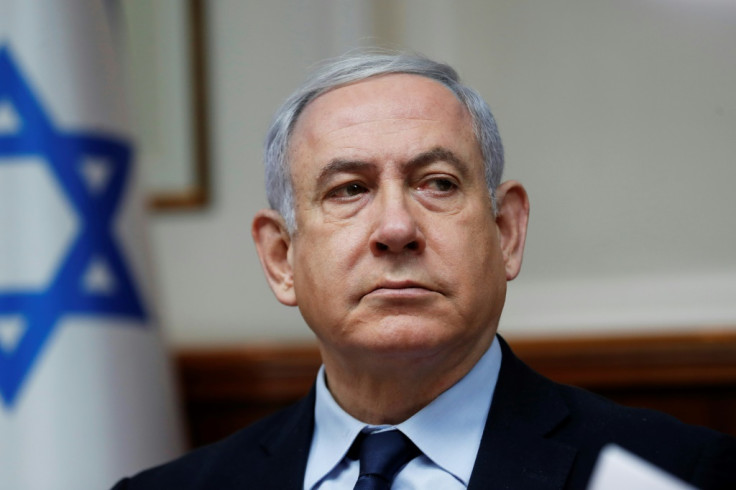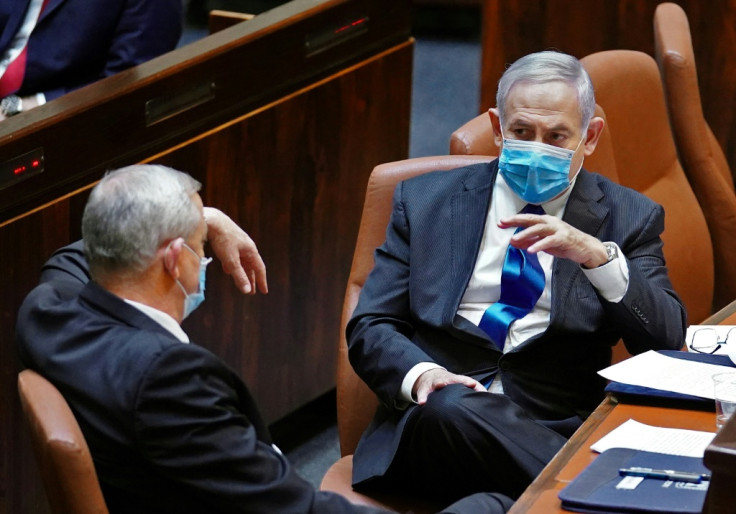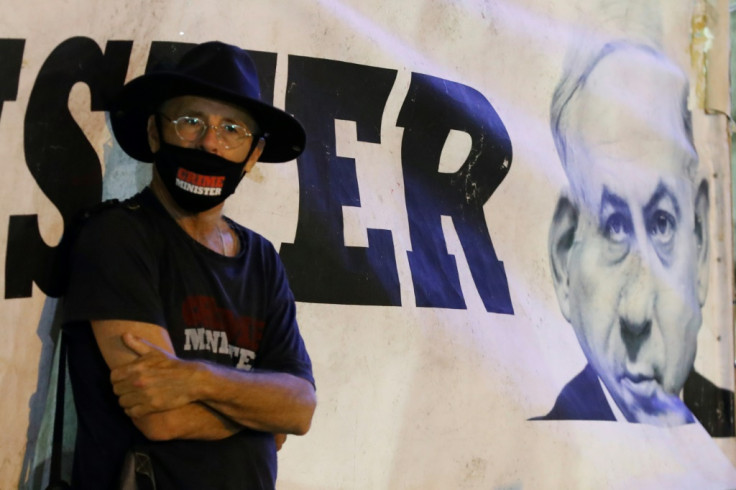Netanyahu to face court in 'unprecedented' corruption trial
Among the charges Netanyahu faces is that he sought to illegally trade favours in exchange for positive media coverage for himself.
Israel's veteran Prime Minister Benjamin Netanyahu was set Sunday to become the country's first sitting premier to face criminal charges over a string of corruption allegations which he denies.
Fresh from forming a new government after more than 500 days of electoral deadlock, Netanyahu was expected to begin a new battle in the Jerusalem District Court -- to stay out of prison.
The 70-year-old was scheduled to appear at a 1200 GMT court hearing to formally confirm his identity to judges, after being indicted in January for bribery, fraud and breach of trust.
Protests against his rule were scheduled shortly before the opening of the trial, which is expected to last months if not years.
Among the charges Netanyahu faces is that he sought to illegally trade favours in exchange for positive media coverage for himself in Yediot Aharonot, Israel's top-selling newspaper.

Israel's longest-serving leader is also accused of accepting cigars, champagne and jewellery worth 700,000 shekels (180,000 euros) from wealthy personalities in exchange for favours.
He denies all the charges and on Sunday re-tweeted right-wing American commentator Mark Levin, who labelled the day "one last effort by the Left in Israel to remove and destroy Prime Minister Benjamin Netanyahu".
Speaking at the first formal cabinet meeting of his unity new government later, Netanyahu did not mention the trial, instead highlighting his work combating the coronavirus outbreak.
Among the most serious allegations against Netanyahu is the claim that he offered media mogul Shaul Elovitch regulatory changes worth millions of dollars to his telecom giant Bezeq in exchange for favourable reporting on the Walla! news website.

That charge is also the most complex, said Amir Fuchs, a researcher at the Israel Democracy Institute, who argued it differs from "classic" bribery cases where money changes hands.
In this case, Fuchs said, the allegation is that Netanyahu "is getting only media coverage," rather than cash.
"It is unprecedented," he told reporters.
But in the Bezeq case, Fuchs added, Netanyahu is accused of doing far more than to seek flattering write-ups.
"It was actually complete editorial control of this site even on the specifics of which posts to make, or which pictures".

After months of suspense and repeated police questioning of Netanyahu, Attorney General Avichai Mandelblit in January filed charges against the premier.
Many commentators considered this the premier's political death warrant.
But Netanyahu retained the Likud leadership and after three inconclusive general elections managed to hammer out a power-sharing deal with his chief election rival Benny Gantz.
Under the agreement, Netanyahu will continue to lead the government for 18 months before handing over the premiership to Gantz.
Netanyahu's trial had been due to open in mid-March, but the COVID-19 pandemic led to a postponement to May 24, and the proceedings will be marked by social-distancing and other hygiene measures.
The premier's lawyers had requested that he be excused from appearing in person at the opening of the trial.
They argued that his attendance, to hear the formal reading of the charges against him and confirm that he has read and understood them, was merely technical.
But the court rejected the request, citing a clause in Israeli criminal law stating that "a person may not be tried on criminal charges except in his presence".
Under Israeli law, a sitting prime minister does not have automatic immunity from prosecution but also is not obliged to resign when charged, only when convicted and after all avenues of appeal have been exhausted.
Yuval Shany, law professor at the Hebrew University of Jerusalem, argued that there is "a basic incompatibility" between Netanyahu's role as head of the government and his status as a criminal defendant.
In the latter role, Shany said, the premier will be "fighting very aggressively and maybe effectively to weaken the government authorities that are prosecuting him".
"There is a very serious conflict of interest situation," he said.
Once the trial is under way, the three judges selected by the Supreme Court will be able to demand Netanyahu's presence in court when they consider it necessary.
At any time before the verdict Israeli law allows Netanyahu to change his plea in exchange for lesser or fewer charges.
Such plea bargains are common in Israeli courts.
Copyright AFP. All rights reserved.
This article is copyrighted by International Business Times, the business news leader





















